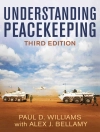This book develops a theoretical approach to social stratification and applies it to the development of the official system of state honours in Britain. It examines both class and status, and sets out an innovative framework for understanding social status – an important but often ignored and misunderstood dimension of social stratification. It is shown that a system of peerages, knighthoods, and other state-based royal honours emerged from feudal patterns of political rule and became an unplanned framework of social integration in the UK that has, since the nineteenth century, decayed and been challenged by alternative criteria of status.
The book explores the class basis of the rise and decay of royal honours and includes a review of contemporary attempts to reconstruct and renew a system of social honour that reflects contemporary relations of power and class in Britain.
It will be of interest to scholars and students of class, social inequality and British social structure.
Innehållsförteckning
Part 1. Theorising Class and Status.- Chapter 1. From Max Weber.- Chapter 2. A General Theory of Status.- Part 2. Lords, Knights, and Companions.- Chapter 3. Chivalric Honours.- Chapter 4. Aristocratic Honours.- Chapter 5. Imperial Honours.- Chapter 6. Contested Honours.
Om författaren
John Scott is the author and editor of over 40 books, and has published widely on social stratification, social theory, and research methods. He has worked at the University of Strathclyde, Leicester University, Essex University, and Plymouth University, UK. He is a member of the Council of the British Academy, the Council of the Academy of Social Sciences, and a member of the Board of Governors of Plymouth Marjon University. He received the lifetime achievement award of the British Sociological Association in 2023 and was appointed as a Commander of the British Empire for services to social science in 2013.












